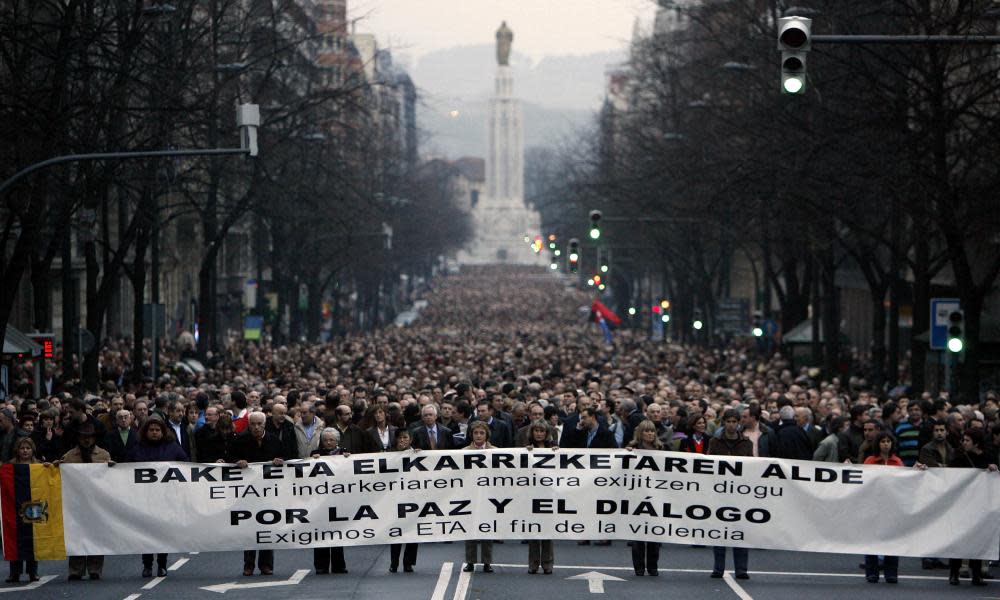Basque separatist group Eta announces dissolution

The Basque separatist group Eta, which killed more than 800 people during its 40-year terror campaign, has announced its full dissolution days after apologising to its victims and their families.
In a letter dated 16 April, but published by a Spanish online newspaper on Wednesday, the group informed Basque institutions and civil society groups that it had come to the end of its existence.
“Eta has decided to declare an end to its historical cycle and its role, thereby bringing its path to an end,” said the letter, which was obtained by eldiario.es. “Eta has completely dissolved all its structures and declared an end to its political initiative.”
The group, which abandoned its armed campaign seven years ago, said the move was part of a process intended to “bring about a new political cycle” in the Basque homeland.
“This decision ends Eta’s 60-year historical cycle,” it added. “But it does not bring an end to the conflict between the Basque homeland and Spain and France. The conflict did not begin with Eta and will not end with its dissolution.”
The letter said Basques had a new opportunity to break with the past and build a future together: “Let’s not repeat our mistakes. Let’s not let our problems fester. Doing so will only give rise to new problems.”
Eta will hold a symbolic event marking its disbandment in southern France on Friday.
Its apology last month was dismissed by victims’ groups, but hailed by the Spanish government as proof that Eta had been defeated “with the weapons of democracy and the strength of the rule of law”.
Spain’s interior minister, Juan Ignacio Zoido, reacted to the letter by promising that the police would continue hunting terrorists “wherever they may be”.
He added: “Eta members got nothing when they stopped killing and they won’t get anything by making a statement about dissolution.”
Eta, which stands for “Basque homeland and freedom”, was founded as a cultural organisation in 1959. Its aim was the establishment of an independent Basque state in northern Spain and southern France.
It took up armed struggle the following decade and, between 1968 and 2010, murdered 829 people in bombings and shootings, almost half of them civilians.
The group also targeted state security forces and in 1973 assassinated the Spanish prime minister Luis Carrero Blanco with huge car bomb.
But Eta’s disregard for civilian life left it increasingly marginalised. In 1987, it killed 21 people in a supermarket bombing in Barcelona. Six million people took to the streets in protest a decade later after it murdered Miguel Ángel Blanco, a young local politician.

 Yahoo News
Yahoo News 
